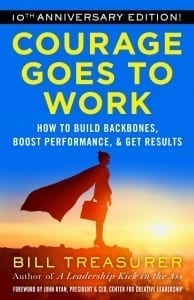What To Know When Buying A Business

If it’s profitable
This might seem like a no-brainer, but it’s important to ask the previous business owner the right questions, including:
- Why are you selling?
- What condition is the building in and are there any repairs that need to be made as soon as possible?
- What the sales system looks like and what the target demographic is?
- What is employee turnover like?
- Who are your vendors, and what is your relationship with them like?
All of these factors can impact your new business’s bottom line, and you don’t want to enter into an unprofitable business from the start because you overlooked an important question or two in the preliminary stages. Determine the risks before jumping in with both feet, and you’ll thank yourself later.
If it’s in a good location
When you take over an already-established business, you inherit everything that goes with it, including its shortcomings. If your business involves customers coming in person to your brick-and-mortar, you want to make sure the location is good and going to attract the right customers. Also consider other factors against it, like the cost of rent compared to other favorable locations.
If the location you’re inheriting is not ideal and you want to purchase a commercial property and move the business, it’s wise to enlist the help of an experienced real estate lawyer, like Watts Law Firm PA. They can help you navigate the complex process with ease, advise your purchase, and if need be, help solve any legal conflicts.
What kind of branding and marketing already exists
Branding and marketing are crucial in today’s connected world. A business’ social media presence can make or break them, just as one bad piece of PR can. Decide if you want to keep with the established branding or if you want to totally rebrand the business. Keep in mind the pros and cons of rebranding before deciding:
Pros: Established brand awareness, retention, and satisfaction among previous and repeat customers; one less task to think about on your plate.
Cons: Possibly inheriting poor branding; don’t get to personalize your business to your liking.
Either way, it’s good to know what kind of marketing efforts have been made and are currently underway, if any. This way, you can understand what worked and what didn’t for the target demographic, which will give you a jumpstart on your own efforts.
If your financing is secure
Yes, buying a business is a huge expense – it isn’t a secret. You want to ensure you’re coming out of the gate swinging in order for your new company to be a success. Avoid the financial headaches and stress by securing your funding far in advance and having a plan to pay back any loans. You can acquire funds by taking out a bank loan, a loan with a financing company, or using your home as collateral for a home equity loan. It wouldn’t hurt to talk to a financial advisor to set up a savings plan if that is the route you want to take.



 Bill Treasurer is a workplace expert, courage pioneer, and author of Courage Goes to Work: How to Build Backbones, Boost Performance, and Get Results. Founder of Giant Leap Consulting, a consulting and training company specializing in courage-building, he advises organizations — including NASA, eBay, Lenovo, Saks Fifth Avenue, Spanx, the U.S. Department of Veterans Affairs, and the Pittsburgh Pirates — on teaching workers the kind of courage that strengthens businesses and careers. Learn more at
Bill Treasurer is a workplace expert, courage pioneer, and author of Courage Goes to Work: How to Build Backbones, Boost Performance, and Get Results. Founder of Giant Leap Consulting, a consulting and training company specializing in courage-building, he advises organizations — including NASA, eBay, Lenovo, Saks Fifth Avenue, Spanx, the U.S. Department of Veterans Affairs, and the Pittsburgh Pirates — on teaching workers the kind of courage that strengthens businesses and careers. Learn more at 
